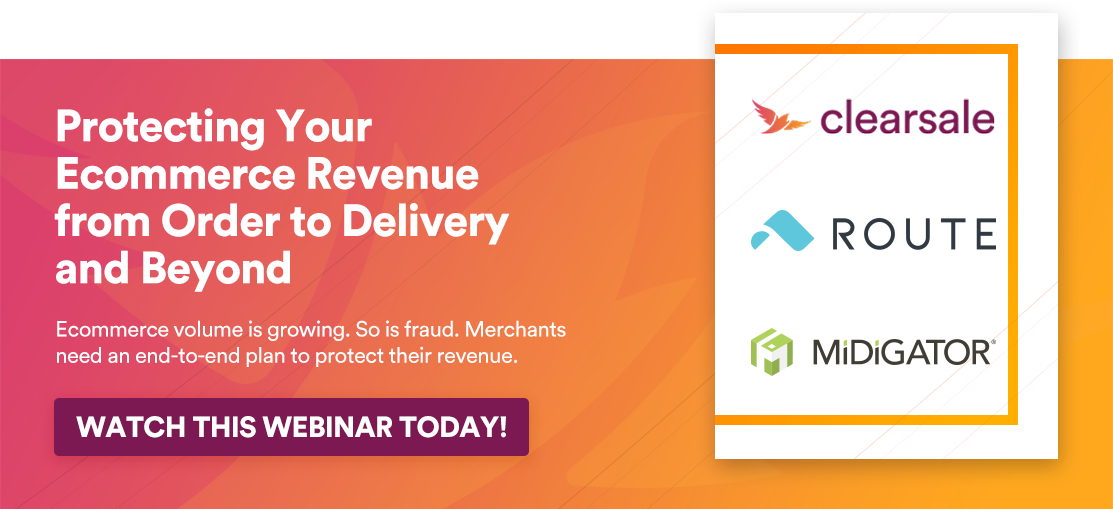E-Commerce Payment Processing Options for Enterprise Merchants
Enterprise-level e-commerce merchants need to be able to accept as many legitimate online payment transactions as possible, mitigate risk, while delivering a secure and robust omnichannel checkout experience. This builds their brands and establishes a trusted customer relationship.
Picking the payment processor to deliver on these needs is critical. But it isn’t easy, there is a lot of information to parse and understand.
With a wide range of payment gateways and processors to pick from, enterprise businesses must know what their options are and how to partner with the providers that will best meet their needs.
But where should they start?
Eric Negler, ClearSale’s VP of strategic partnerships, shared what he believes enterprise merchants should know and ask about the payment processing options available to them.
Q: What’s the Biggest Difference Between a Processor for Small and Medium-Sized Businesses (SMBs) and Enterprises?
A: While SMBs can usually more than adequately handle their smaller sales volume with one of the many gateways and associated processors, enterprises usually head straight to a single processor. Thanks to their higher sales volumes, enterprise-level merchants (generally those with $10 million or more in online revenue) can get better deals on point-of-sale systems, interchange rates, currency conversion and even price points per transaction. This one-stop solution is ideal for these large, busy merchants because if something goes wrong, it takes just one call to one company to solve the problem, whereas SMBs could be making multiple calls to multiple payment processors.
Q: What Features Should an Enterprise Look for in a Payment Processor?
A: Just as there are countless choices for e-commerce platforms, there are ample payment processor options (FIS, Global Payments, WorldPay, etc.) that will let enterprises accept a wide variety of payment methods.
The central themes, features if you will, of the top tier of processors are centered around: expansion to international markets, security of payments and consumer data, fraud & risk, and payment acceptance via any device anywhere, anytime. These are pervasive in the payment industry messaging.
A continuing trend that we’re seeing is the payment processors that are consolidating at such a high rate that there may be only a few companies left. The reason for this is that it’s hard for these processors to drive revenue and differentiate just off transacting payments. Ergo: consolidation provides more payment volume, increased geographical coverage, maximizing the currencies that are accepted, and value-add merchant services that are required to compete.
Given that future, here’s what to Iook for in a processor.

Compliance
These processors act like banks, which means they’re heavily regulated and must be in compliance with PCI, DSS, GDPR, PSD2 and other regulations related to money changing hands, consumer data handling and the shifting sands of regulations that may come up in the future. This dovetails into the security of payments and consumer data message/offerings.
Compliance is not optional and it takes the compliance burden off of the merchant, adding a layer, or layers, of protection from hackers trying to compromise the system. You want to ensure your processor is storing your customers’ personally identifiable information in an encrypted vault. Add to the mix, tokenization, which is a popular method to obscure credit card information when it’s being stored or transmitted.
Payment processor compliance is purposeful in that it intentionally removes PCI compliance off of the merchant, eliminating liability and associated costs. Instead, the processors do all the work for you.

Reporting
Many processors and payment platforms have come up with analytics and reporting that let enterprise-level merchants manage their businesses more efficiently. But you need to make sure that this data is going to be quick and easy to pull for it to be useful. Reporting on payments should be a click away.

Geography
Enterprise-level merchants need a processor that’s flexible and that offers different payment methods, but I suggest they also look at processors by geographical coverage.
At ClearSale, we perform 85% of the online payment market risk evaluation in Latin America — and there’s a reason for that. We have experience in the market, know the countries, cultures, languages, shipping methods, method of payments, etc. to do cross border business - i.e. what we call “the digital language”. You want the same regional qualifications in your processor.
Q: What Are Some Common (and Uncommon) Payment Methods Enterprises Should Know About?
A: Part of the reporting that bigger processors do is analyzing how customers are making payments — whether they’re using American Express, Visa or even PayPal or Discover. Some processors differentiate the business even further by showing transactions that customers used rewards points, or even virtual currency, like bitcoin.
Q: What Processing Options Are There for Cross-Border and High-Risk Transactions?
A: Once you start expanding into multiple countries, you may need to consider using a payment gateway that will give you access to multiple processors and let you find the best processor for the region. That may mean working with multiple processors to ensure you can cover the geography and the Method of Payments (MOP). Consider Latin America. It’s a homogenous continent with non-homogenous countries, various National IDs and diverse payment methods. So, if you’re selling internationally, you need a processor that accepts a region’s preferred debit/credit instruments, digital wallet(s) and other alternative payment methods.
You might also need to partner with multiple processors if you’re selling in specific categories. For example, if you’re selling anything that has to do with marijuana, firearms or alcohol, some banks that back processors won’t accept those kinds of transactions. So, you’ll need to use a processor who is willing to take on these higher-risk transactions. Be sure to have an open discussion about what goods the processor is willing to transact.
Q: What Fraud Prevention Options Should an Enterprise Consider When Evaluating Payment Processors?
A: Some of the largest payment processors have acquired fraud prevention solutions. PayPal acquired Simility. ACI Worldwide bought Retail Decisions. American Express acquired Accertify. Visa acquired CyberSource, Cardinal Commerce and Verifi. MasterCard acquired Ethoca and NuData Security Inc. and that’s just the start.
These processors are trying to expand their portfolio into the fraud area, but here’s my take on it. If I’m a merchant, I want a fraud prevention solution that can be tailored to my specific business need. An estimated 10% of customers visiting a merchant are net new customers, and many of these AI & machine learning-only systems don’t like net new customer data — because there’s no historical data for them which poses inherent challenges to effectively make accurate transaction decisions.
In addition, and particularly in the current market, you have to have human beings in the mix to add the net new consumer data to AI & ML models during this persistent peak of online ordering. Right now, we’re in a huge peak of online ordering for many merchant types. People don’t want to spend the time and effort to go into a physical store to buy things. They’d much rather just place an online order. So, you’ll want to ensure your fraud/risk solution has the staffing resources, like actual human risk analysts with demonstrable agility in updating the Machine Learning and AI models to maintain the highest online acceptance rates.
If you see payment processors have some a built-in fraud prevention system, you’ll want to find out what their default fraud filters doe, how you modify or improve them, and be certain they can be tailored to your needs.
And once you’ve picked the right processor, you want to guarantee you’ll see more payment revenue.
That’s where a fraud prevention partner like ClearSale comes in. In our 18-plus years of experience, we’ve created a team that gives you the highest industry approval rate, an instant increase in payment volume processed, and the ability to enter the international market with zero risk. When your enterprise-level organization is ready to take the next step in sales, contact us. We’ll be glad to tell you more.
 Rafael Lourenco
Rafael Lourenco


